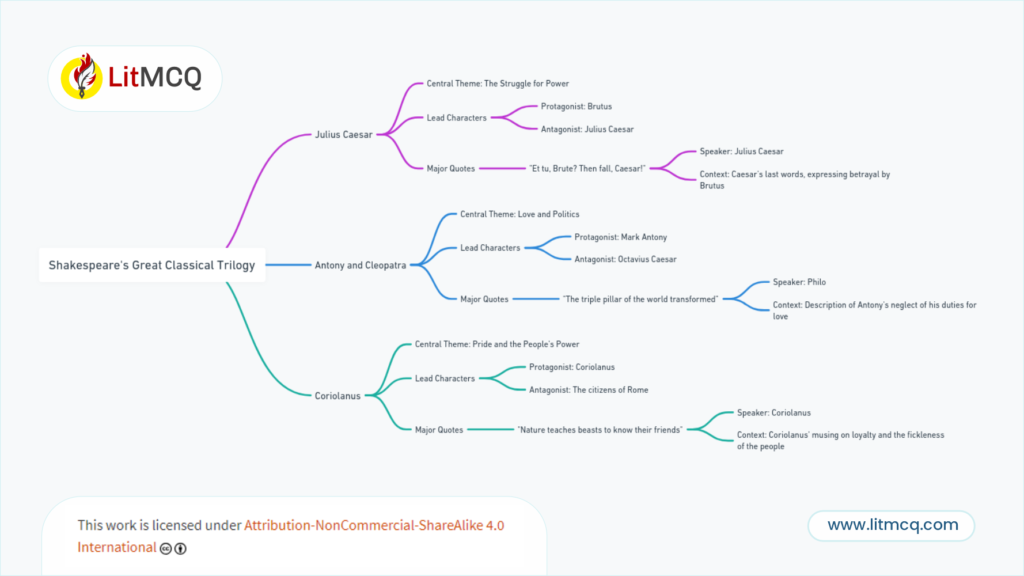Rajasthan Public Service Commission (RPSC): Question Paper for Assistant Professor (College Education) – 2020 Paper-II (English-II)
- A. Wilson Knight
- B. L.C. Knights
- C. Dover Wilson
- D. Edward Dowden
Answer: A. Wilson Knight
Explanation: G. Wilson Knight, a notable literary critic, emphasized the importance of Rome as the central figure in Shakespeare’s Roman plays, rather than focusing solely on individual characters.
G. Wilson Knight, an influential Shakespearean critic and scholar, is renowned for his interpretive approaches to Shakespeare's work, where he often viewed the plays through a symbolic and thematic lens rather than strictly character-based analysis. In his analysis of Shakespeare's Roman plays, Knight argued that Rome itself, as a setting and an idea, plays a central role that is as significant as, or even more so than, the individual characters within the plays. This perspective highlights the importance of the social, political, and philosophical context of Rome in understanding the plays' deeper meanings and themes. Knight's work, including his emphasis on the thematic and symbolic elements of Shakespeare's plays, has contributed significantly to the field of Shakespeare studies and literary criticism.
Shakespeare’s Roman Trilogy consists of three tragedies that delve into the politics, power struggles, and personal dynamics of ancient Rome. These plays are:
- Julius Caesar: Written in 1599, this play focuses on the conspiracy against Julius Caesar, his assassination, and its aftermath. It explores themes of power, loyalty, and the consequences of political ambition.
- Antony and Cleopatra: Likely written around 1607, this tragedy follows the relationship between Mark Antony of Rome and Cleopatra, the Queen of Egypt, after Caesar’s death. The play examines the conflict between duty and desire, and the political turmoil that ensues.
- Coriolanus: Believed to have been written between 1605 and 1608, it tells the story of the Roman leader Caius Marcius Coriolanus. The narrative revolves around his military successes, his disdain for the common people, and his eventual downfall, highlighting themes of pride, class conflict, and the nature of power.
These plays collectively explore the complexities of leadership, the nature of ambition, and the intricate dynamics between personal desires and public duties in the context of ancient Roman society.
| Play Title | Central Theme | Protagonist | Antagonist | Major Quote | Speaker | Quote Context |
|---|---|---|---|---|---|---|
| Julius Caesar | The Struggle for Power | Brutus | Julius Caesar | “Et tu, Brute? Then fall, Caesar!” | Julius Caesar | Caesar’s last words, expressing betrayal by Brutus |
| Antony and Cleopatra | Love and Politics | Mark Antony | Octavius Caesar | “The triple pillar of the world transformed” | Philo | Description of Antony’s neglect of his duties for love |
| Coriolanus | Pride and the People’s Power | Coriolanus | The citizens of Rome | “Nature teaches beasts to know their friends” | Coriolanus | Coriolanus’ musing on loyalty and the fickleness of the people |

